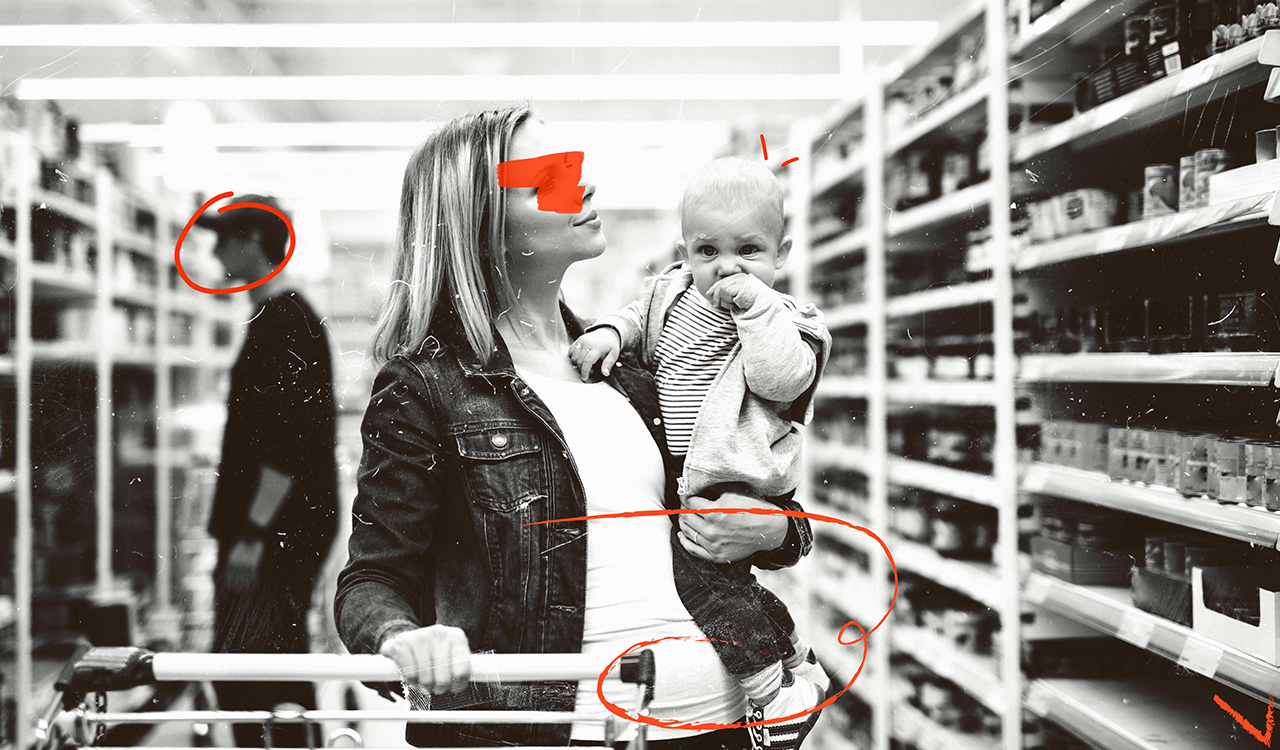Social media can be toxic for young consumers, and some platforms are worse than others. The Facebook empire, in particular, has been in the hot seat lately due to the recent release of a few studies that point to the destructiveness of Facebook and Instagram for teen girls’ perceptions of body image. In investigating claims, Facebook found that “one in five teens say that Instagram makes them feel worse about themselves.”
[callout]Instagram isn’t just an innocuous pastime for some next-gen teens… it can also lead them into an abyss of self-loathing and body dysmorphia. [/callout]
Not a good look for the largest social media platform. Advertising on Facebook and/or Instagram is a given for most mid to large-sized retailers –– especially those targeting a younger consumer demographic. So, let’s investigate the ways Facebook and Instagram are contributing to the mental health epidemic, the ethics behind how the platforms show up in teen girls lives, and how brands and retailers can advertise ethically on the platforms.
Instagram’s Impact on the Mental Health Epidemic
Teenage girls are the demographic most harmed by using the two platforms. In fact, among teens who reported suicidal thoughts, 13 percent of British teens and six percent of American teens traced the issue specifically to Instagram. What’s particularly disturbing about this trend is that over a billion people use Instagram each month. That number is even higher among next-gens who use the platform to connect with peers, check in with their favorite influencers, get fashion inspiration and connect with their favorite brands. But Instagram isn’t just an innocuous pastime for some next-gen teens… it can also lead them into an abyss of self-loathing and body dysmorphia.
A recent study found that Instagram makes “body image issues worse for one in three teenage girls.” That’s particularly concerning considering that over 40 percent of Instagram users are 22 years old or younger. Many of the problems listed in recent studies were found to be specific to Instagram, and not social media in general. Instagram is an amalgamation of filtered images of influencers and celebrities. However, Instagram isn’t the only platform responsible for teens’ raging body image issues.
The Macabre Result of Unrealistic Ideals
Want to feel like you’re living in an episode of “Black Mirror?” Mull over the fact that women are getting plastic surgery to look more like how they do with Snapchat filters. Over half of American Academy of Facial Plastic and Reconstructive Surgery surgeons say patients\’ motivations in getting surgery was to “look better in selfies.” Compare that to just 13 percent in 2016 and it’s easy to see why this phenomenon is becoming a cause for concern.
The unattainable beauty ideals that teens encounter on social media can lead to spikes in anxiety, depression and body dysmorphia. Teens then try to achieve unrealistic body ideals through starvation or surgery. Yes, the overall rate of plastic surgery is increasing as the use of filters on social media images becomes more pervasive. Cosmetic injections skyrocketed from 2015 to 2019. Anti-wrinkle injections (including Botox) increased by 63 percent, filler use by 22 percent, and laser skin resurfacing by 10 percent.
Covid did slow the rate of cosmetic injections –– since medical spas were deemed “nonessential” and had to shut down. However, the impact of social media on teens’ already fragile psyches was unmitigated in 2021. Young people spent more time at home on their phones instead of with friends or doing extracurriculars. As a result, there were no reality checks to temper the impact of filtered social media images on their overtaxed psyches.
Should the Platforms Be Held Responsible?
Mental illness for next-gens is on the rise. More than 7 in 10 Gen Z report experiencing depression during the pandemic. Gen Z also reported the highest level of anxiety. The business ethics surrounding how companies utilize social media is an ongoing discussion. As the retail industry continues to evolve, so do our conversations need to around how modern marketing methods impact the end consumer – particularly those from vulnerable demographics, such as teen girls during a global mental health crisis.
Facebook has been hesitant to release studies showing its impact, and that Instagram, on the mental health of teen girls. So, it should come as no surprise that there was a huge outcry from local lawmakers and the public alike when the company announced that it was planning an “Instagram for kids.” Lawmakers have called for social media platforms to be more transparent about their impact on different demographics. However, few have released internal data surrounding the ways that these platforms influence teens’ mental health. Facebook cited the privacy concerns of respondents as the reason for this. However, based on the data that’s been released thus far, it’s easy to see why the company is trying to keep its data under wraps.
An Alternative Solution
It’s become clear that social media companies are not going to readily take responsibility for the effect of their platforms. The onus, then, falls on retailers to ensure that they’re advertising ethically, with messages and products that target next-gens in healthy ways. In other words, retailers should take care not to encourage eating disorders, drug use, or self-destructive behavior in their marketing messages –– the opposite of Urban Outfitters 2014 release of syringe-shaped pens or its still-up-and-running Hairroin salon.
Yes, next-gens resonate with irreverence. They enjoy challenging the status quo. Retailers, then, are faced with the option of reaching them through unhealthy messages, or connecting with them by aligning with social causes, speaking out about controversial topics of interest, and being brazenly transparent on social media –– both about their internal practices and about the mental health of their core demographic. Brands like Leret Leret, The Mayfair Group, and Madhappy have made bold strides in the mental health arena. However, thus far this activity has been relegated to luxury and mid-tier brands, like Levi’s 501 Live Concert Series, but next-gen consumers that shop off-price and resale deserve access to the same resources. It’s time retailers stop paying lip service to caring about their customers and began taking real, measurable strides to make mental health and wellness a priority.




